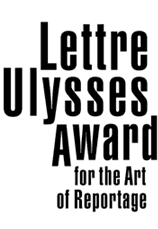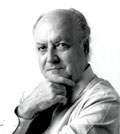
Jorge Edwards, Chile

Writer, journalist, and diplomat. From 1957 Jorge Edwards above all dedicated himself to his diplomatic career, but he did not give up writing; more stories ensued and in 1965 his first novel El Peso de la noche (The Weight of the Night) was published. He worked at the Chilean embassy in Lima until 1971. In the same year, Salvador Allende's new government sent Edwards to Cuba as the first ambassador of his country. His arrival coincided with that critical time during the Cuban Revolution when Castro turned against the intellectuals whom he had previously supported. In his book Persona non grata (1973) Edwards writes about these experiences with Fidel Castro, who had called him a "middle-class intellectual" and accused him of acting against the Cuban Revolution.
The military coup in 1973 in Chile meant the end of his diplomatic career. Edwards then went to Paris with the Chilean ambassador to France, Pablo Neruda, and spent five years in exile between France and Spain. He now exclusively dedicated himself to literature and journalism. In 1978 Edwards returned to Chile. In 1981 Edwards published El museo de Cera (The Wax Museum), in 1985 La mujer imaginaria (The Imaginary Woman), in 1988 El anfitrión (The Host), and in 1996 El origen del Mundo (Origin of the World). His last novel was published in 2000: El sueño de la historia.
With his novels, volumes of stories, and essays, he has won important prizes including the III Premio de Comillas de biografía, autobiografía y memorias (1990) for Adiós Poeta, a book about his memories of Pablo Neruda. In 1994 he was awarded the Premio Nacional de Literatura de Chile for his complete works and in 1999 the Premio Cervantes (his speech), which is considered the "Nobel prize of the Ibero-American region." His books have been translated into many languages.
Jorge Edwards lives in Santiago de Chile.
